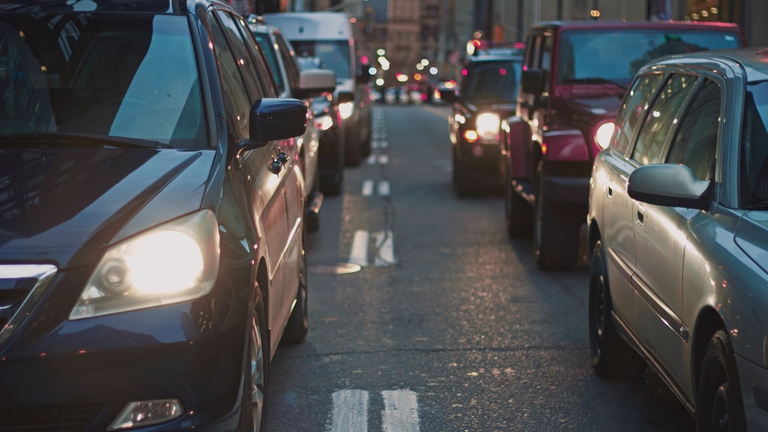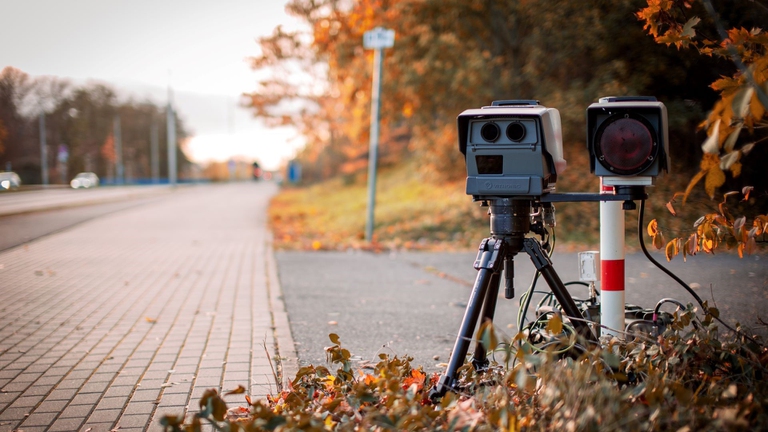https://www.lifegate.it/riforma-codice-della-strada-via-libera-disegno-di-legge
- |
On September 18th Council of Ministers ha approved on bill which introduces interventions on road safety and the delegation for the revision of the highway code, thus giving the green light to the bill signed by the Minister of Infrastructure and Transport Matteo Salvini.The text will begin its parliamentary process from October, with the aim of reaching final approval by the end of the year.The innovations introduced concern in particular restrictions for those who drive while intoxicated and after taking drugs, with harsher penalties for repeat offenders.Harsher sanctions also for those who violate speed limits and for those who use i electronic devices while driving, while restrictions apply on the use of speed cameras and on scooters, as anticipated in the package presented in June.
New Highway Code:heavier penalties for speeding, use of electronic devices, alcohol and drugs
Better the stick or the carrot?To stop the massacre that occurs on our roads (with 3,159 victims last year according to official Aci-Istat data, up almost ten percent compared to 2021) the government seems to have no doubts.“Zero tolerance for those who drive drugged or drunk” is the motto that accompanies the tightening of sanctions for those who drive while intoxicated or after having taken drugs.Another novelty is thealcoholok:in fact, if you are caught driving with excess alcohol in your body for the second time, you are obliged to install the alcohol lock, a device that prevents the engine from starting if the driver's blood alcohol level is above zero.The absolute ban on drinking alcohol then continues for two or three years, depending on the crime.

Obviously it is essential to combat those who drive under the influence of alcohol and drugs but when talking about safety and victims of road violence, we must remember that such behaviors cause "only" four percent of accidents (6,761 out of 151,875 total, according to the Ministry of the interior).
Heavier sanctions, we were saying, also for failure to comply with the rules regarding the use of electronic devices while driving.The deduction of points from the driving license increases (eight points in the event of a first violation e 10 points from the second) and the expected pecuniary sanction increases, which goes from the 165-660 euro range to that of 422-1,697 euros.Furthermore, the additional sanction of license suspension of driving from fifteen days to two months from the first violation and if the violation is committed several times over the course of two years, in addition to the suspension of the license for one to three months, the payment of a sum of between 644 and 2,588 euros is expected.
Penalties also increase for speeding fines that can exceed one thousand euros with license suspension from 15 to 30 days for anyone who violates the limits twice in a year in a residential area.The restriction on driving also concerns new drivers, which is banned from driving large-engined cars for three years, while it shoots for i scooters the obligation to have a helmet, license plate and insurance. A restriction announced in June which sparked controversy from the associations dealing with active mobility and sustainable.
New restrictions for the use of speed cameras
“Stop wild speed cameras, used only to issue fines”, declares Minister Salvini, lighting up the bellies and gaining the consent of those who hate these tools to the point of setting them on fire, as reported by the news events of this summer with the cases of speed cameras sabotaged or even set on fire.However, let us remember that excessive speed is the main cause of accidents (Istat 2021) which can be limited thanks to the installation of speed cameras.

Road safety, the importance of checks and prevention
While we await a detailed analysis of the changes made to the highway code by those who deal with sustainable mobility and who have raised the critical issues of this approach in recent months, we ask for an initial comment from Massimo Gaspardo Moro, head of the study center of Fiab, Italian Federation of Environment and Safety.“Looking at the proposed changes overall – states Gaspardo Moro – the question emerges controls.Problems related to road safety are not solved with a more or less heavy sanction, but with controls and prevention.What we have observed for years in our country is a demonstration of this:if the controls are not effective and constant, harsher sanctions are not necessary."And then he continues:“I'll give you an example.In many years of driving, in Italy I have only received one fine for speeding, while I was once in Austria for a short period and I received a fine because I was going at 65 km/h instead of 60.Where there is serious control, the limits are respected."

Another sore point of the new Highway Code are the restrictions on the use of scooters:“These are means that incentivize one alternative mobility to the private car, especially for last mile journeys", Gaspardo Moro reiterates.“They favor intermodality and are a good combination with public transport.In this way they are weakened.Most European countries have no such restrictions, which among other things do not affect people's bad behavior.Anyone who rides a scooter on the sidewalk will continue to do so."There are also strong doubts about the new ones rules that limit the use of speed cameras.“These are precious tools for speed control and moderation, especially in cities, where they are still used little in Italy.Placing restrictions with the excuse that they are used to raise cash has no logic whatsoever" concludes Gaspardo Moro.
“We need a new awareness of risks”, the voice of those who work in driving schools
“We need to intervene on the consciences of younger people, making them aware of the potential risks they incur when they are behind the wheel.The tightening of sanctions can certainly be a deterrent, but today we need to cultivate the seed of road safety to reap the fruits in the near future."As Paolo Colangelo, president of Confarca (Italian confederation representing over 2,500 driving schools and automotive consultancy firms) comments on the interventions in road matters and delegates for the revision of the Highway Code.According to Colangelo, the tightening of sanctions, with tripled fines and suspended licenses for those who drive with a mobile phone, "are a good deterrent to dangerous driving", but "at the same time we must intervene at the root, inculcating a new and based awareness of road safety and risks that you can run when you're driving."The lack of perception of danger remains one of the major causes of road accidents that need to be addressed, so Colangelo reiterates the need for one mandatory training, preparatory to the driving license exam.“More hours dedicated to safety through training entrusted to industry experts – adds Colangelo – will serve to cultivate a future generation of motorists and motorcyclists today who are aware of the real risks when driving.We at the driving schools are ready to do our part to give birth to a new generation of increasingly empathetic and conscientious drivers."
